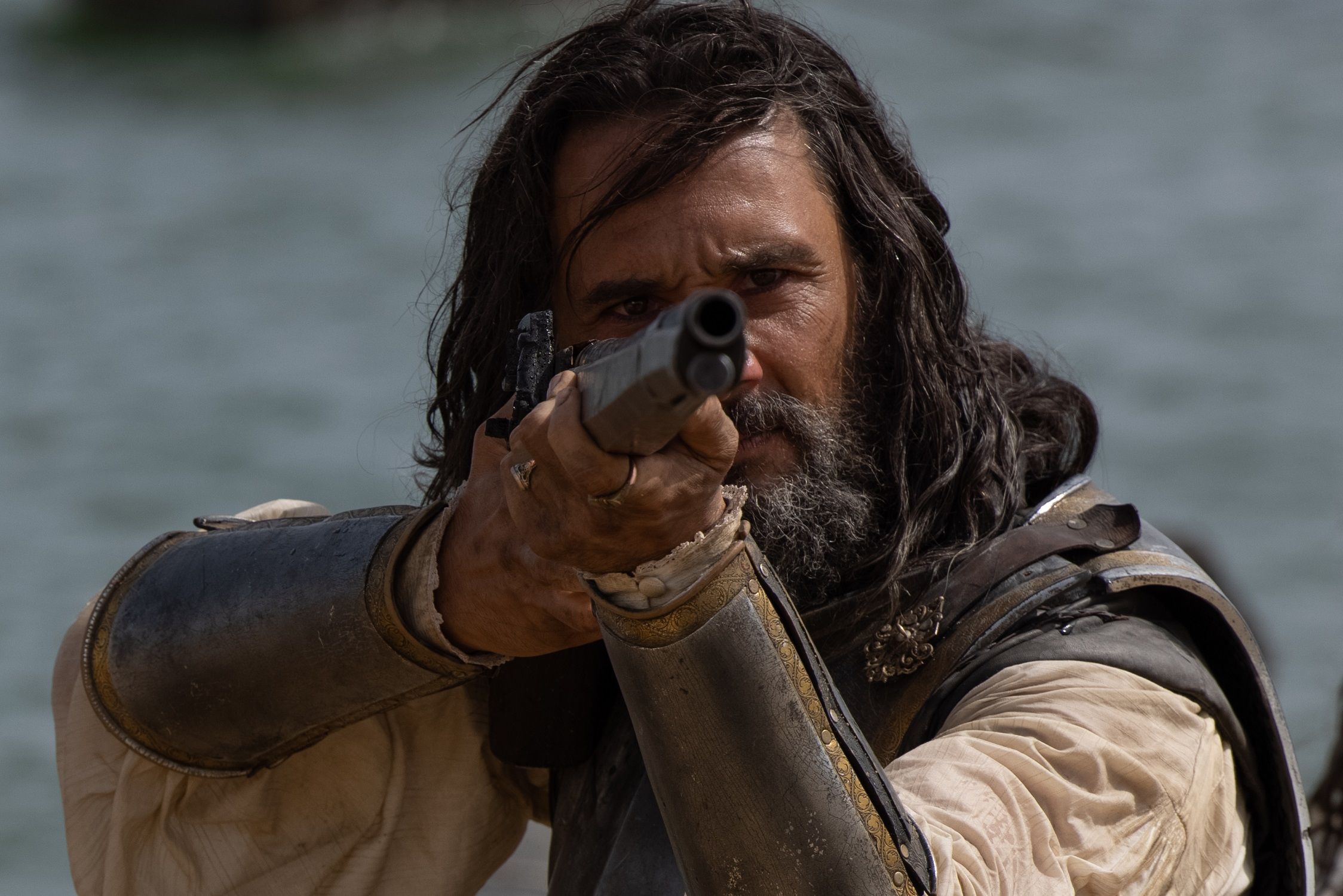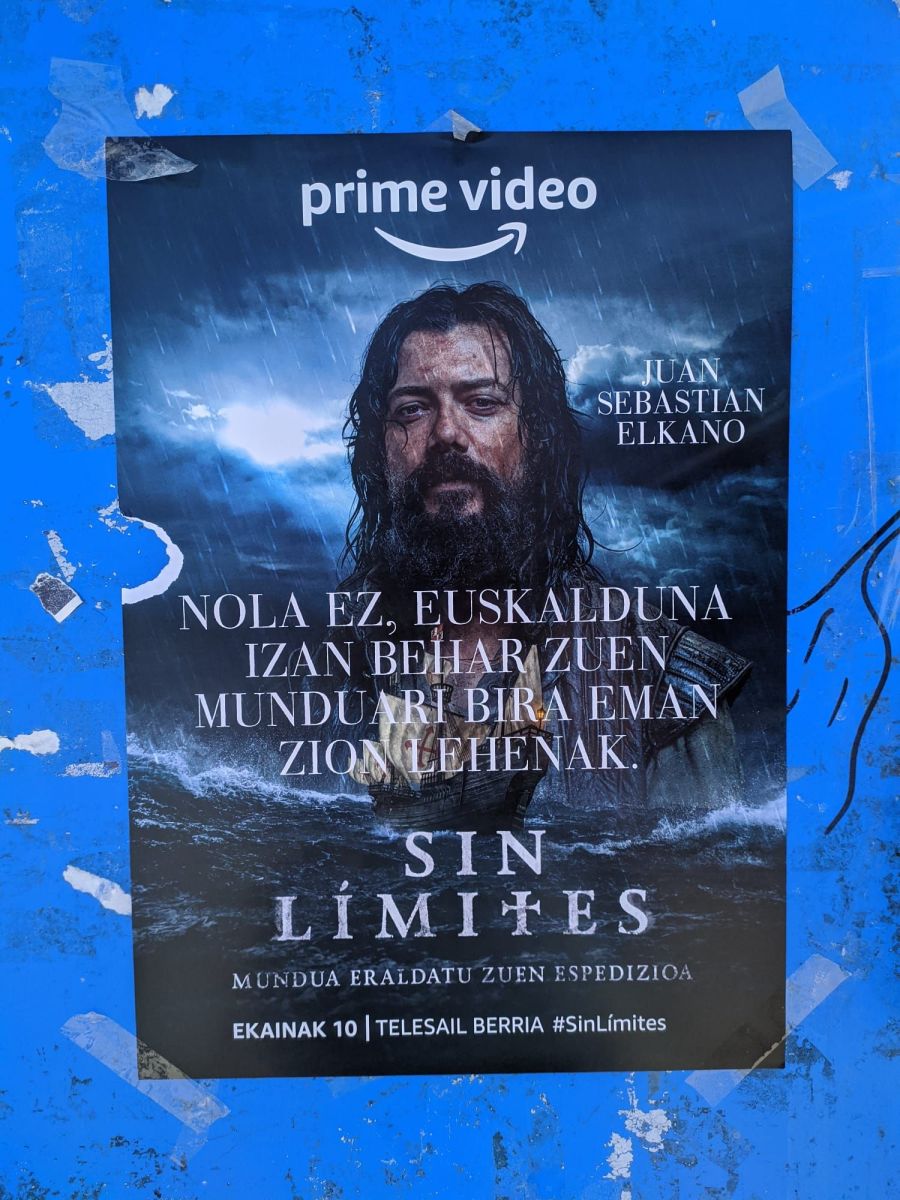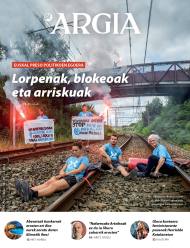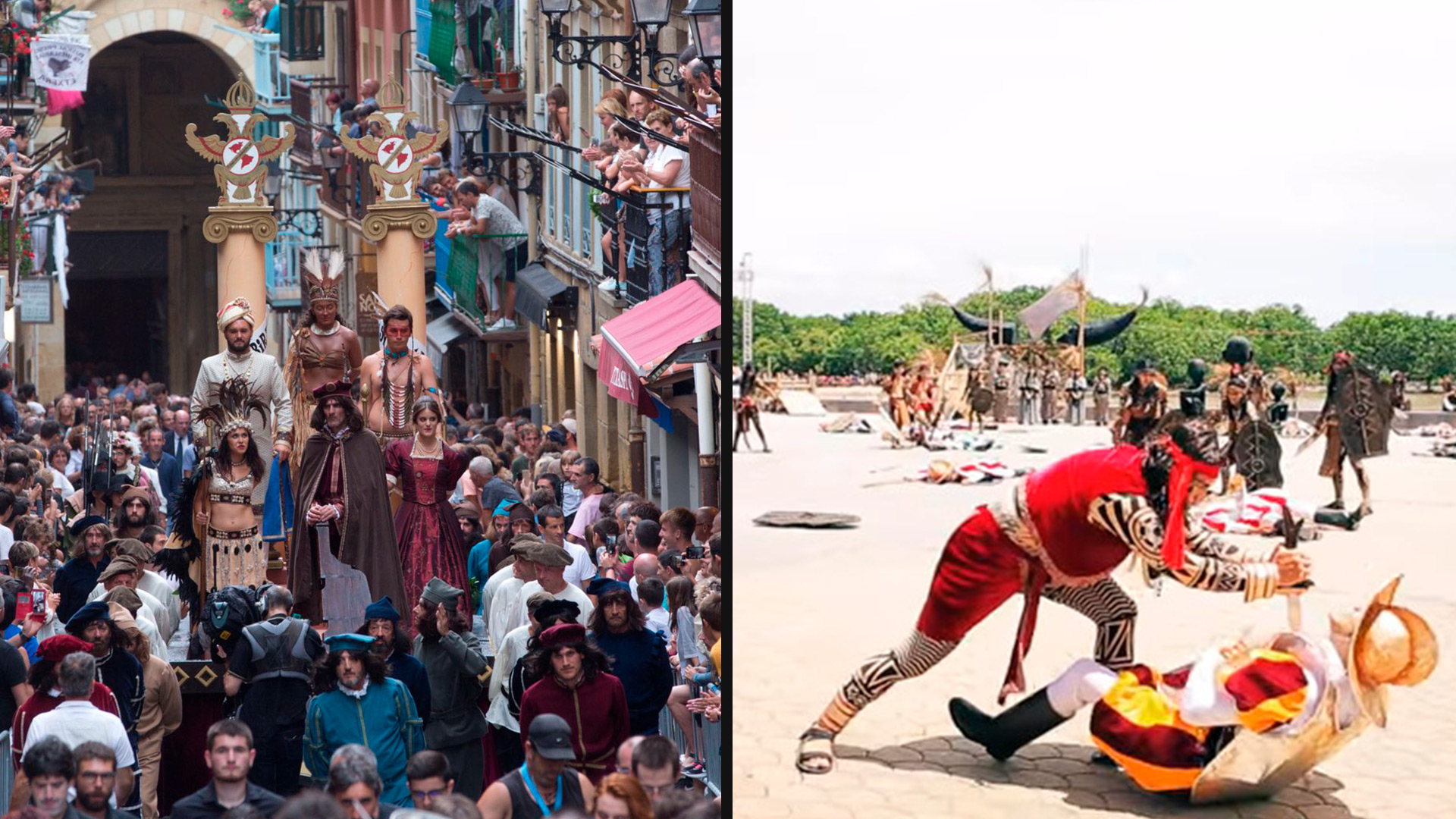No Limits or how to repeat conventional narratives about the first world tour
- On 6 September, the 5th Centenary of the arrival of the ship Victoria to Sanlucar de Barrameda was celebrated, with the memory that three years after its departure, five centuries before, the first world round was formed. As is usual in this type of commemoration, in these years all kinds of cultural activities have been carried out to remember the crossing. One of them is Without Limits, one of the most widely disseminated series.

If we make a quick tour of the websites of the promoters, instead of delving into the historical complexity of the facts, we will discover that almost all the proposals have been aimed at increasing their heroes, especially the leaders, Fernando Magallaes and Juan Sebastián Elkano, who would say they are the only ones, and conventional narratives that continue to reinforce all kinds of heroic, patriotic or identity narratives stand out. Unfortunately, this way of telling history, written above all on the basis of the biographies of kings and individual actors, neutralizes the importance of social events and ignores, in addition to the particular feats, the existence of political, economic and material conditions that determined the existence of people and the causes of their participation in the events.
In the Spanish State many of the events at the end of the Fifth Centenary have taken place in Seville, and most have followed the typical canons of this type of celebrations, including the show of enessimas at the Fura del Baus, of course. On this occasion, with the traditional paraphernalia, they used a 500-pound mermaid as an ambassador for sustainability and the blue planet (there could be no missing gesture to green rhetoric). In addition, the City of Seville, in a show without political imagination, has baptized its new cultural center with the name of Magellan. It is a historic building of the 18th century, 20,000 square meters, old “Artillery Factory”, of great architectural interest and currently in rehabilitation process. Responding to many of the objectives demanded by current European cultural policies and economic strategies, the equipment will be used exclusively for “Entrepreneurship of the cultural and creative industries”. It seems that the recognition of their original name “artillery factory” has made them embarrassed; their name has a great semantic power, and would force them to implement cultural policies that incite them to reflect boldly and rigorously politically, ethically and aesthetically on the historical meaning of the name and the challenges that it would entail facing the current social conditions of life.
I am convinced that there would be exceptions to the story of the historical events of then — especially in the academic environment — but the rule has been to repeat clichés and narrative conventions. Three years ago, at the beginning of the celebrations, I wrote in my blog the article Revisiting the History of Heroes and Nations (Revolution in the History of Nations and Heroes), in which I explained that these kinds of acts continue to maintain a romantic and heroic vision of history, rejecting its complexity and its implications in the current configuration of the world.

This is also the case in one of the audiovisual productions with the greatest media impact, Without limits. Towards the ends of the world. Released in June, produced by TVE, the only state public chain, and Amazon Prime Video. Six chapters describe the impact of the expedition and the plots focus primarily on the personal vicissitudes of Magellan and Elcano. The series delves into the mythological conception of history, which tells us the lives and miracles of the main protagonists, and which almost abandons the political, social, economic and cultural importance of these facts when representing the world today.
First, the title of the series highlights a certain “Eurocentric” conception of the world. That is, a planet that has a “center”, known and dominant, and another part that is located at the edge of the earth, a far dominated and unknown periphery. Carlos I is an imperialist and colonial vision initiated by Spanish, named after the merger of the crowns of Castilla, Aragon and Navarra. This king, also emperor of the Holy Roman and Germanic Empire, was the main driver of this navigation project, with the objective of finding the best way to spread the market of species, land appropriation, nature and the extraction of human goods, and thus increase the influence of its power. I. As Wallerstein told us in detail in his monumental work The modern world system, these journeys, called “discovery” or “return to the world”, were part of the great sea crossings and commercial expeditions that reinforced the absolute monarchies in the sixteenth and seventeenth centuries. Later on, monarchies allowed the consolidation of European states, while reworking the maps of the lands conquered in their image and likeness, opening the way to a new economic order, capitalism, in which the exchange of goods, the exploitation of the material resources of the colonies and human exploitation prevailed for the benefit of some and to the detriment of others.

For the cultural industry it is much easier to highlight some narrative conventions, as it is more convenient to think that history is nothing more than simple mythical simplifications. However, in my view, the public institutions that have devoted so many resources to the acts of the centenary of the world revolution took the opportunity of postcolonial studies. Fundamental tests (Postcolonial studies. Key essays) paraphrasing what Sandro Mezzadra says in his book, to try to evoke the facts from numerous geographical places and historical experiences, crossing various views that would destabilize and decentralize attempts to impose a single vision of universal history, which would allow us to free ourselves from certain colonial stereotypes. Far from the hegemonic narratives, as Chimamanda Ngozi Adichie reminds us in The Danger of the Single Story, history cannot be written from the whole, but from the various centers that make up the world, because none can impose itself on others.
Unfortunately, this has not happened either. On the contrary, the clichés of conventional historiographical rhetoric have again been highlighted. The focus of the artistic direction of the series has placed on the boats the focus of the narrative, functioning in some way as a plató that represents the center of the world, as a marine metaphor of the heroic spirit of the conquering metropolis. The rest of the territories and landscapes, hardly visible in the series, converted into an empty exotic space, are secondary places of the plot and politically banal. However, the series continuously emphasizes the military and strategic importance of an expedition that stretches without limits (a planet that can be exploited without limits, a narrative vision that underscores a certain theory of global history, the origin of stractivist capitalism and colonialism).
Therefore, the heads of expedition and their men are the only beings in the series of human character, together with the protagonists of the nobility who remained in the Castilian court, among them the woman of Magellan, pregnant and, of course, tormented by the absence of her husband. Beatriz de Barbosa's secondary character is probably the only woman in the series to cover the minimum share of women in the cast. The most worrying thing politically is that the rest of the people and their places of residence, in most cases almost innominate, are mere tragedies of the script. Worse still, these men and women without a voice and without words have been imagined as invisible menacing warriors; or brutal murderers; or slaves, who are part of the anonymous black mass, meted as animals in the cage; or as bodies of sexualized or idealized women, through loving tricks, projecting a romantic view of the relationships among strangers, apparently accepted, and of the processes of adaptation to the culture of the navigators.

In this sense, the scene of the indigenous people who take the Lord is an excellent example of how religious colonization, the long process of cultural hybridization and mestizaje are historically separated. This type of simplifying narratives emphasize that colonial peripheries and their inhabitants are unknown spaces closed, intact, ethnically clean and culturally traditional, which Claude Levi-Strauss called “ancient fields of history.”
According to Mary Louise Pratt, modernity working from America is the historic moment when it begins to meet a great and different “Euro-imperial adventure”. When Old World Europeans first met the peoples and cultures of the New World in the 15th century, a question was asked and it was not exactly a question: Are you not sons or brothers, are you not daughters or sisters? No, the question was whether they really were human, whether they belonged to our same species, whether they emerged from another creation. Thus, for the first time in the modern discourse of the West, the question of racial inequality and the issue of the original theology of the power of Christianity was raised. For centuries, his ambition was to establish a binary dividing line in the classification system of the two creations of the human race, among them incompatible, and to emphasize the predominance of the Christian religion in the formation of moral norms.
Representations are never naïve, they always accompany visions that establish the main subjective forms, perpetuate reactionary imaginaries. Although fortunately this type of white and western narrativity is increasingly questioned the existence of works (to mention a few recent, Zamak de Lucrecia Martel or Raoul Pecken Basati exterminated), the film industry continues to spread in many of its productions a long colonial, racist and patriarchal shadow. The images of Sin Santos, in which the indigenous people appear, tend to legitimize the paternalistic and xenophobic narrative, and are very similar to the first historical descriptions that explained the first encounters of civilized white Europeans with the “other”, helping Stuart Hall build what is called “unfortunate triangle of race, ethnicity and nation.”
Two friends offered a small rap performance in the plaza and musutruk, after a simple popular meal. With a song, we were reminded that a neighbor, a young man, recently passed away. Money had to be raised to return the body to its hometown. Oh, that mother of mine! Your child's... [+]
Unconscious day-to-day exercise has become a topic during your stay in the Basque Country. I haven't been there for many days and I've been squeezing my breath several times... I'm an observer trying to find and rediscover my people. If I didn’t want to see things before or if... [+]

















